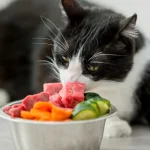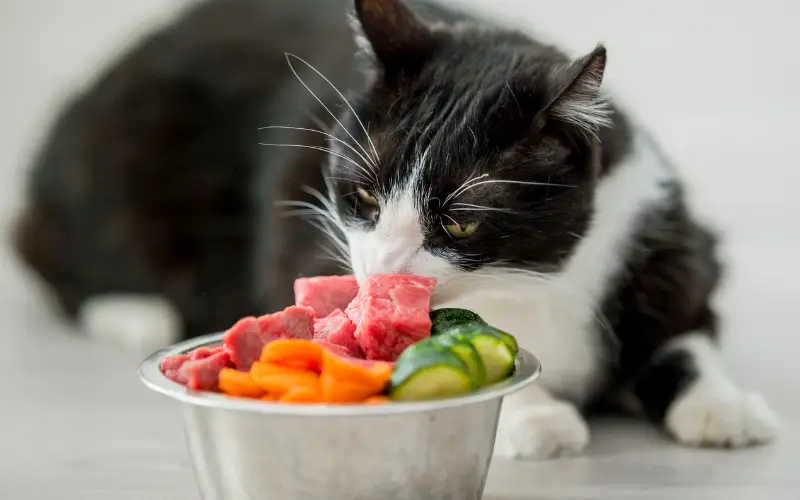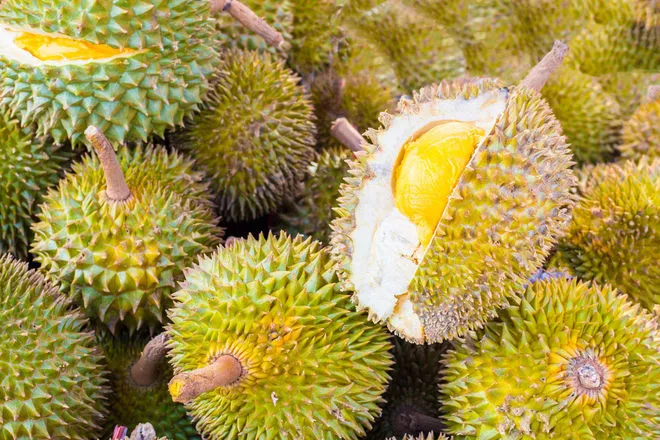As cats grow older, their dietary requirements evolve significantly, necessitating adjustments to their daily nutrition to ensure they remain healthy and active. This comprehensive guide explores the best diets for elderly cats, emphasizing the importance of meeting their changing nutritional needs. From understanding key dietary components to choosing the right type of food, this article provides valuable insights into maintaining the health and vitality of your aging feline friend.
Discover expert tips on how to cater to the specific needs of senior cats, ensuring they enjoy a balanced, fulfilling diet that supports their well-being throughout their golden years.
Must Read: 7 Foods to Avoid While Taking Jardiance
Understanding the Nutritional Needs of Aging Felines
The Importance of Protein and Fat in an Elderly Cat’s Diet
Protein is vital for preserving muscle groups in elderly cats. As they age, cats can lose muscle, so a weight loss program high in problems digestible protein is critical. Fats are similarly critical, presenting energy and helping with the absorption of nutrients. However, the kind of protein and fat, their proportions, and digestibility play a large role in the appropriateness of a diet for senior cats.
Vitamins and Minerals Crucial for Senior Cat Health
Elderly cats want the stability of unique nutrients and minerals to maintain their health. Calcium and phosphorus wish to be carefully balanced to assist bone fitness, at the same time as antioxidants, which include nutrients E and C, can help mitigate the effects of getting older. It’s essential to pick diets that are specially formulated for senior cats to make certain that one’s goals are met.

Health Challenges in Elderly Cats and Nutritional Responses
Managing Kidney Disease Through Diet
Kidney sickness is common in elderly cats and may be controlled with a specialized weight-reduction plan. Diets low in phosphorus and protein but high in first-class and digestibility can help reduce the workload on the kidneys, potentially slowing the development of the ailment.
Dietary Adjustments for Cats with Diabetes
For diabetic cats, a low-carbohydrate, immoderate-protein diet regime can help adjust blood sugar tiers. It’s critical to try and find guidelines from a veterinarian to tailor the food plan for your cat’s precise dreams, as diabetes can vary in severity.
Nutritional Considerations for Cats with Dental Issues
Dental fitness problems can affect how an elderly cat eats. Wet meals can be simpler for cats with dental issues to eat than dry kibble. Additionally, softer diets, which might be easy to bite, can help hold calorie consumption and nutritional balance.
Recommended Food Types for Elderly Cats
Wet Food vs. Dry Food: What’s Better for Your Senior Cat?
Wet meals are frequently recommended for elderly cats because they are less complex to eat and permit accelerated water consumption, which is essential for preventing kidney issues. However, dry food may be useful for those without dental issues because it allows them to remove plaque from their teeth.
Homemade Diets: Benefits and Risks
While self-made diets permit complete manipulation of the elements, they require careful planning to ensure they meet all of a cat’s dietary desires. It’s recommended to make those diets below veterinary steerage to avoid nutrient deficiencies.
How to Transition Your Elderly Cat to a New Diet
Step-by-Step Guide to Changing Diets
Transitioning an elderly cat to a new diet must be completed regularly over numerous weeks. Mixing increasing amounts of the new food with the vintage food prevents digestive dissatisfaction and allows the cat to adjust to the new flavor and texture.
Monitoring Your Cat’s Health During Dietary Transition
It’s critical to display your cat for any symptoms of digestive misery or refusal to devour at some stage in the transition. Regular vet tests can assist ensure the brand-new eating regimen meets all of your cat’s health necessities.
Best Commercial Foods for Elderly Cats
Review of Top Brands for Senior Cat Nutrition
Several commercial cat meals are mainly formulated for senior cat health, offering balanced nutrients tailor-made to growing older desires. Brands like Purina Pro Plan, Royal Canin, and Hill’s Science Diet offer senior-specific formulations that target digestive fitness, joint assistance, and immune gadget energy.
What to Look for in Commercial Cat Foods
When choosing commercial ingredients for your aged cat, look for diets that are lower in energy but excessive in fiber and protein. Ensure they incorporate dietary supplements, including omega-3 fatty acids, which can help preserve coat fitness and joint mobility.
Feeding Practices and Schedule Optimization
How Often and How Much to Feed Your Elderly Cat
Elderly cats benefit from smaller, more common food, which is useful for digestion and nutrient absorption. Consulting with a vet can help determine the premier feeding schedule and quantities based on your cat’s health circumstance and activity stage.
The Role of Hydration in an Elderly Cat’s Diet
Hydration is crucial for elderly cats, particularly if they have kidney issues. Ensuring access to easy water at all times and galvanizing consumption by setting up more than one water station around your house can help maintain the proper hydration levels.
Common Myths About Feeding Elderly Cats
Debunking Misconceptions About Senior Cat Nutrition
Many misconceptions exist about feeding elderly cats, including the idea that they need to be fed a low-protein diet. However, except specifically encouraged by a vet for fitness motives, a fantastic protein weight loss program is important for preserving health and vitality in senior cats.
Caring for a Senior Cat Beyond Diet
Exercise and Mobility for Senior Cats
Regular, mild exercise can help aged cats preserve muscle mass and mobility. Activities such as brief play periods with gentle toys can encourage movement without overexertion.
Regular Veterinary Check-Ups for Optimal Health
Regular vet visits are essential for monitoring the health modifications that arise in aged cats. This article examines how the U.S.A. can help trap and control common age-related troubles such as arthritis, thyroid problems, and other health concerns.
Case Studies and Success Stories
Real-life Examples of Improved Health Through Diet
Many cat owners have seen top-notch enhancements in their senior cats’ health and electricity levels via dietary modifications. Sharing those tales can encourage other cat owners to recall careful nutritional planning for his or her getting older pets.
Conclusion
Ensuring optimal nutrients for elderly cats is vital for their health and well-being as they age. Understanding their precise dietary wishes enables them to deal with commonplace age-associated troubles and enhances their first-rate existence. As cats age, their digestive systems become much less efficient, and their nutritional necessities change, necessitating greater specific and punctiliously balanced nutrients.
Regular veterinary test U.S.A. Tailored diets can prevent or manage age-related sicknesses, selling a healthier, more lively lifestyle even in their senior years. Cat proprietors need to stay knowledgeable and proactive about their aged cat’s eating regimen and basic health regimen.
By specializing in proper nutrition, hydration, and everyday veterinary care, you could ensure that your senior cat enjoys its golden years with vigor and happiness. Always remember that every cat is specific, and nutritional adjustments must be made primarily based on a person’s health desires and veterinary advice.
Frequently Asked Questions
What special nutritional considerations are there for elderly cats with kidney disease?
Kidney disease is common in aged cats, and treating it frequently entails a diet low in phosphorus and moderate in splendid protein. To ease the weight of the kidneys, it’s critical to limit protein sources that produce high levels of nitrogen waste products.
How can I encourage my elderly cat to drink more water?
To encourage hydration, consider placing more than one water bowl around your property or investing in a cat water fountain, which many cats find more engaging. Additionally, feeding wet meals can appreciably boost your cat’s water consumption.
What are the signs that I need to adjust my elderly cat’s diet?
Signs that can imply a need for nutritional adjustments include changes in weight (loss or gain), decreased appetite, digestive issues along with diarrhea or constipation, or adjustments in power levels and coat best.
How do I ensure my homemade cat food is balanced for my senior cat?
When preparing homemade cat food, particularly for senior cats, it’s critical to visit a veterinarian or a puppy nutritionist. They can assist in formulating a balanced diet that contains all necessary vitamins, nutrients, and minerals.
Are treats safe for elderly cats, and how often can I give them?
Treats are safe for aged cats; however, they should be received moderately, making up no more than 10% of their total daily caloric consumption. Opt for healthy deals with options that are low in calories and excessive in protein.
What should I do if my elderly cat refuses to eat the recommended diet?
If your elderly cat refuses to eat according to the recommended diet, try warming the food or adding a small quantity of tuna juice or chicken broth to enhance the flavor. If the refusal persists, seek advice from your veterinarian to rule out underlying fitness problems and discuss alternative nutritional options.











